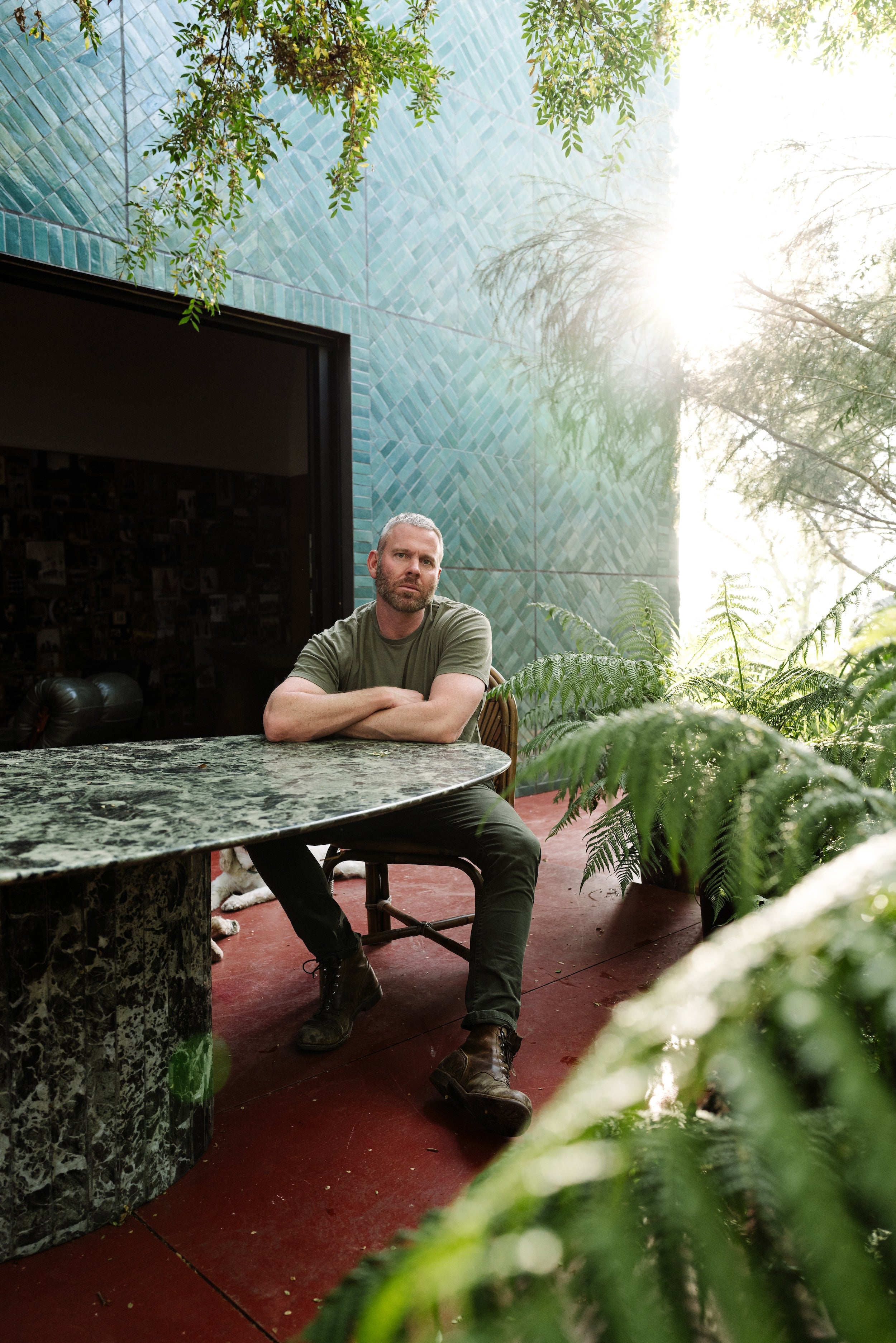During the early days of the pandemic, Richard Christiansen found one door opening while another was closing. For 16 years, the Australia native had been running a large, New York–based creative agency with prominent fashion and lifestyle brands as clients, when one by one, they began to cut back. At his home in Los Angeles under lockdown, Christiansen heard about a farmer who was going to lose her property because the majority of her business came from now-shuttered restaurants. He began selling her farm’s produce under the name of his home, Flamingo Estate. “There was a real joy to this work, which I hadn’t felt for a long time,” he tells host Dennis Scully on the latest episode of The Business of Home Podcast. “There was a cause and effect, like: ‘We’re delivering something that people really need and love,’ and so that continued the growth.”
The sales doubled every weekend, and before long, Christiansen had 50 drivers and was managing a warehouse full of produce. Around that time, he was approached by an olive oil maker and ended up collaborating on soaps, launching the arm of the brand most known today: naturally crafted bath and body products. Within the first two years, Flamingo Estate ended up developing 150 products in collaboration with farmers, as well as teaming up with celebrities like LeBron James, Chrissy Teigen and Kelly Wearstler. “Because we’d never done it before, it was almost the upside-down way of starting a business. [Instead of] saying, ‘Oh, I want to start a bath and body business. What do I need to source?’ [For us] it was like, ‘I’ve got all these ingredients. What are we going to make?’” he says.
One piece of advice Christiansen received from an unlikely source became a game changer for his business. After he approached LVMH for a possible investment in Flamingo Estate, they declined, but told him: “You’re doing something that luxury brands and LVMH [are] hungry to do. I don’t think you even know you’re doing it.” That something? Scaling scarcity. “‘The scarcity of [a small-batch product] is the luxury. Your lavender farm can only make this much [during] lavender season. Your sage farmer can only make this much sage.’ It really set off a light bulb in my head,” he recalls. “It was only then that we stopped trying to pretend we were bigger than we were, and we were just like, ‘OK, we’ve got 400 bottles of this thing. Take it or leave it. We’re not making more.’ [We were no longer] embarrassed that we didn’t have a reliable, consistent supply of something—we started to embrace the scarcity of it all.”
Crucial insight: Early on, Christiansen realized that the brand’s fans didn’t engage with sustainability messaging. “It’s easy for us to say fast fashion is bad and fast home is bad, but I still have a ton of friends who love Zara Home,” he says. “From a business point of view, my view on this is that people don’t care. We need to build a brand that’s just beautiful, and people crave it because it’s beautiful.” To create buzz, he has used celebrity collaborations (with the likes of the Dalai Lama, Julianne Moore, and even the cast of Sesame Street) to attract a customer base that falls in love with the brand without realizing how environmentally conscious it is. “We want people to think it’s a cool, happening brand. … Under the hood, you’ll see that there’s a lot of good stuff going on, but we’re not really talking about it that often, because we need to trick people into spending the right way.”
Key quote: “I want to be big, but I want to do it the right way. I was at a conference visiting a big hotel chain who would like us to put our products in all of their hotel rooms. … Most people would license [their] name to someone who would make [their] products using less expensive ingredients,” he says. “I don’t want to do that, though. I don’t want to use palm oil. I don’t want to use cheap ingredients. I don’t want to outsource our name just to have it in the shower of a hotel.”
This episode is sponsored by Ernesta and Hartmann&Forbes. Listen to the show below. If you like what you hear, subscribe on Apple Podcasts or Spotify.
The Thursday Show
Host Dennis Scully and BOH executive editor Fred Nicolaus discuss the biggest news in the design world, including a massive new round of tariffs, RH’s latest earnings call, and what happens when designers are their own clients. Later, MattoBoard co-founder and CEO Guy Ailion joins the show to talk about his company’s digital approach to sampling.
This episode is sponsored by Jaipur Living and Chelsea House. If you like what you hear, subscribe on Apple Podcasts or Spotify.





























